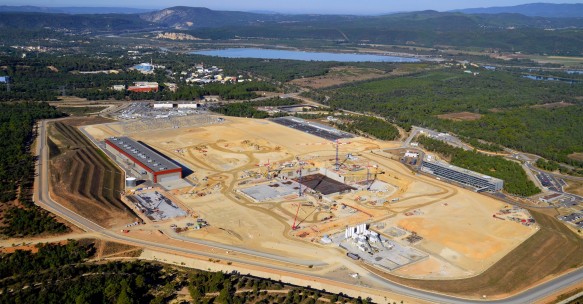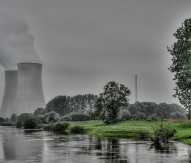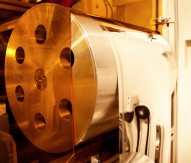
Non-essential ITER projects postponed
A panel of experts and ITER staff has announced that non-essential physics work and other experimental studies being conducted as part of the fusion reactor project have been postponed. The delay is to allow exclusive focus on the main goal of the project, to prove the viability of fusion as an energy source.
According to the journal Nature, while the original plans (to produce 500 megawatts of output power using only 50 megawatts of input power (shortened to Q ≥ 10) by building a large tokamak thermonuclear facility in which plasma will be created from the hydrogen isotopes, tritium and deuterium before intense magnetic fields will be used to force the fusion to take place) remains in place, other non-essential projects are now at risk.
ITER is an international project with members from China, the EU, Japan, India, Korea, Russia and the USA, with a goal of completion by 2027.
Now, however, a vote has taken place at the Science and Technology Advisory Committee meeting to postpone projects that are seen as not necessary for completion of the overall project. Planned experiments such as testing longer-pulse and steady-state plasmas will therefore be moved to the years after the facility is up and running.






